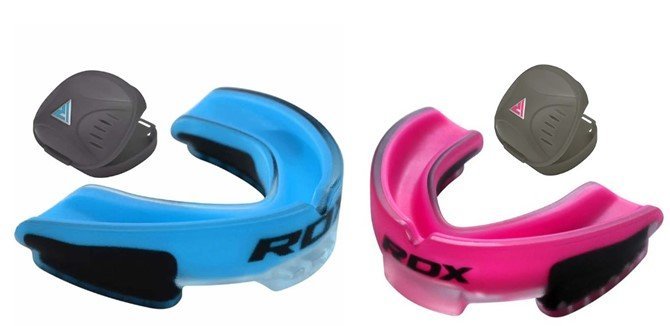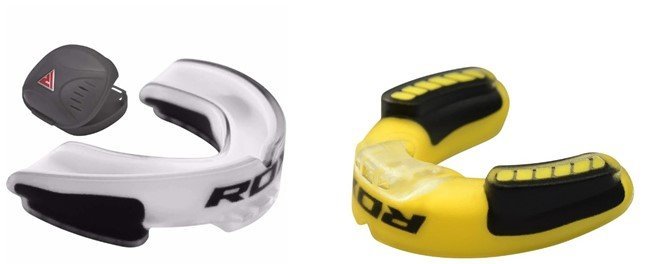Mouth Guard: The Ultimate Guide to Protecting Your Smile

What comes to mind when you think of sports safety? Helmets, pads, and shin guards are probably at the top of your list. But what about protecting your teeth? That’s where mouth guards come in. These essential pieces of equipment are designed to protect your smile from injuries during high-impact activities. Let's dive into everything you need to know about mouth guards, from their history and types to how to choose the best one for your needs.
History of Mouth Guards:
Early Beginnings:
The concept of mouth guards dates back to the early 20th century when boxers first started using crude versions made of cotton, tape, and even wood. These early attempts were far from perfect but laid the groundwork for modern designs.
Evolution over Time:
Over the years, mouth guards have evolved significantly. Today, they are made from high-quality materials like silicone and thermoplastic, offering superior protection and comfort. The design improvements have made them an indispensable part of sports safety gear.
Types of Mouth Guards:
Stock Mouth Guards:
Stock mouth guards are pre-formed and ready to wear. They are the most affordable option but often lack a proper fit, making them less comfortable and effective.
Boil-and-Bite Mouth Guards:
Boil-and-bite mouth guards offer a semi-custom fit. They are made from thermoplastic material that softens in hot water. After boiling, you bite into the mouth guard to meld it to your teeth for a better fit.
Custom-Fit Mouth Guards:
Custom-fit mouth guards are made specifically for your mouth by a dentist or a professional lab. They offer the best fit and protection but are the most expensive option.
Choosing the Right Mouth Guard:
Assessing Your Needs:
Consider the sport you play and the level of contact involved. High-impact sports like boxing or football require more robust protection compared to non-contact activities.
Material and Durability:
Look for mouth guards made from durable materials like silicone or EVA (ethylene vinyl acetate). These materials offer better shock absorption and longevity.
Fit and Comfort:
A mouth guard should fit snugly without being uncomfortable. It should cover your teeth and gums fully without impeding breathing or speech.
Benefits of Using a Mouth Guard:
Protection against Injuries:
Mouth guards protect against a variety of injuries, including broken teeth, jaw fractures, and soft tissue damage. They act as a cushion, distributing the force of impacts evenly.
Preventing Dental Damage:
Wearing a mouth guard can prevent costly dental repairs. It helps avoid chipped or knocked-out teeth and other dental emergencies.
Enhancing Performance:
Some studies suggest that wearing a mouth guard can enhance athletic performance by reducing the risk of injuries and allowing athletes to play more confidently.
Mouth Guards in Different Sports:
Boxing and MMA:
In combat sports, mouth guards are mandatory. They protect against powerful blows to the face, reducing the risk of severe dental and jaw injuries.
Football and Rugby:
These high-contact sports see a lot of physical collisions. Mouth guards help protect players' teeth and jaws during tackles and falls.
Basketball and Hockey:
Even in sports where mouth guards aren't mandatory, like basketball and hockey, they provide crucial protection against accidental impacts.
Gymnastics and Other Activities:
Gymnasts and participants in other activities involving falls or collisions can also benefit from wearing mouth guards.

How to Use and Fit a Mouth Guard:
Boil-and-Bite Instructions:
- Boil water and submerge the mouth guard for a specified time.
- Remove and let it cool slightly.
- Bite down firmly to mold it to your teeth.
- Adjust as needed for a comfortable fit.
Custom-Fit Procedures:
Visit your dentist for an impression of your teeth. The mold is then used to create a custom-fit mouth guard, providing the best possible protection and comfort.
Tips for Optimal Fit:
Ensure the mouth guard fits snugly without being too tight. It should allow you to speak and breathe comfortably.
Caring for Your Mouth Guard:
Cleaning and Maintenance:
Clean your mouth guard regularly with toothpaste and a toothbrush. Avoid using hot water, which can warp the material.
Storage Solutions:
Store your mouth guard in a ventilated case to prevent bacterial growth. Keep it away from direct sunlight and heat.
When to Replace Your Mouth Guard:
Replace your mouth guard when it shows signs of wear, such as holes or tears. An ill-fitting mouth guard can’t provide adequate protection.
Common Issues with Mouth Guards:
Discomfort and Fit Problems:
An improperly fitted mouth guard can cause discomfort. Ensure it fits well and doesn’t rub against your gums or cheeks.
Breathing Difficulties:
If your mouth guard makes it hard to breathe, it may be too large or not fitted correctly. Consider a custom-fit option for better airflow.
Allergic Reactions:
Some people may be allergic to certain materials used in mouth guards. Opt for hypoallergenic options if you have sensitivities.
Innovations in Mouth Guard Technology:
Smart Mouth Guards:
Smart mouth guards equipped with sensors can monitor impact force and provide valuable data for preventing concussions.
Advanced Materials:
New materials like thermoplastic elastomers offer better durability and comfort. They adapt to your mouth shape, providing a custom-like fit.
Mouth Guards for Teeth Grinding (Bruxism):
Understanding Bruxism:
Bruxism is a condition where you grind your teeth, often during sleep. It can lead to tooth damage and jaw pain.
Benefits of Night Guards:
Night guards are mouth guards designed to prevent teeth grinding. They protect your teeth and alleviate symptoms of bruxism.
Choosing the Right Night Guard:
Consult with your dentist to choose the best night guard for your needs. Custom-fit night guards offer the most effective protection.
Mouth Guards for Kids:
Importance for Young Athletes:
Children participating in sports should wear mouth guards to protect their developing teeth and jaws from injuries.
Conclusion:
Mouth guards are a crucial component of sports safety gear, providing essential protection for athletes across a wide range of activities. From preventing dental injuries to enhancing performance, the benefits of wearing a mouth guard are significant. Whether you choose a stock, boil-and-bite, or custom-fit mouth guard, the right fit and proper maintenance are key to maximizing protection and comfort.
What's Your Reaction?











![Wireless Connectivity Software Market Size, Share | Statistics [2032]](https://handyclassified.com/uploads/images/202404/image_100x75_661f3be896033.jpg)



